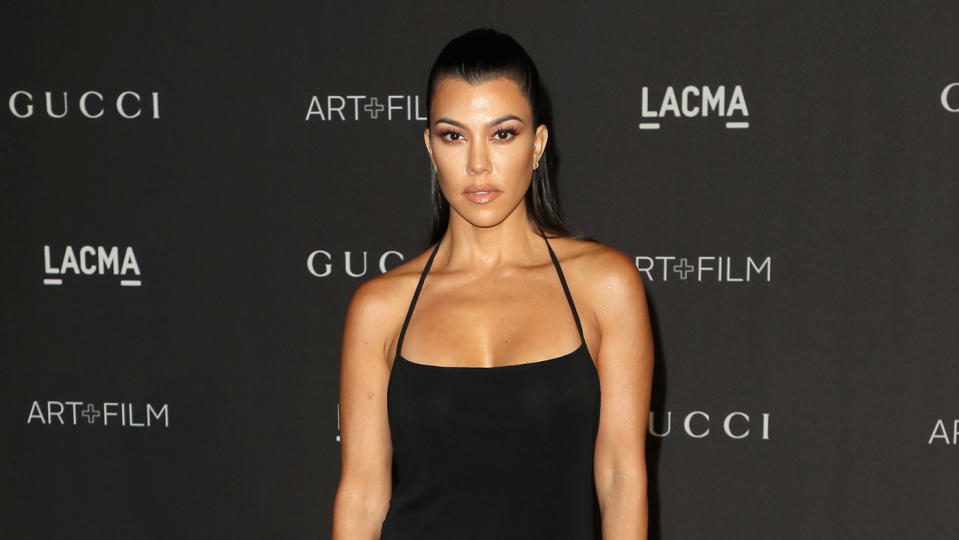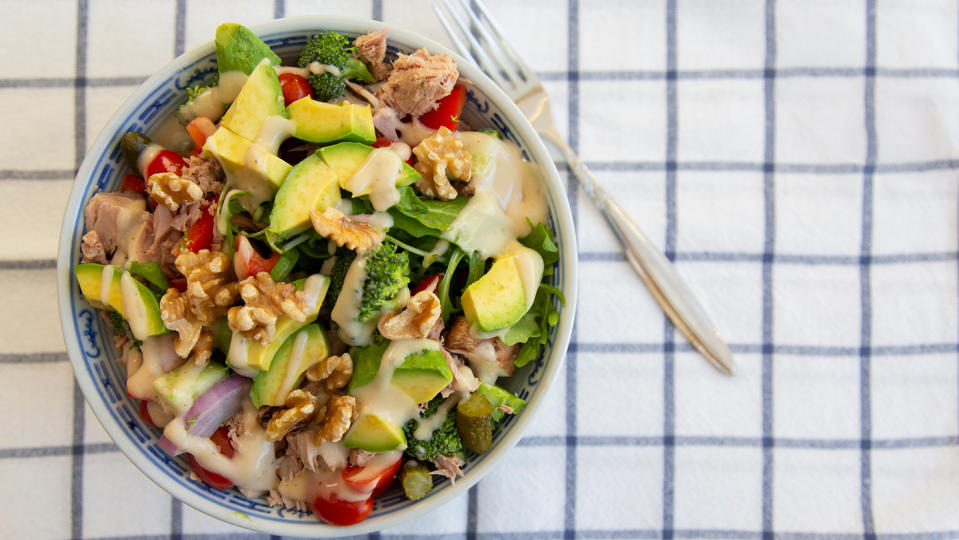The pros and cons of the keto diet, according to one dietician
Watch: What is the keto diet and how does it work?
Halle Berry swears by it, Kourtney Kardashian can’t get enough of it, and Gwyneth Paltrow has dabbled with it in the past. The keto diet is much loved by celebrities due to its fast results, however, is it all too good to be true?
Registered dietician, Dr Sarah Schenker, believes that while there might be some “possible health benefits” to it, in her mind it’s not the perfect diet.
“The biggest problem though, in my opinion, is that it's not sustainable,” she says.
Read more: Drink regular fizzy drink instead of diet version when eating carbs, study suggests
“It will work to begin with, but you can't sustain an eating regime like this and if you don't learn to change your eating habits over the long term, once you go back to your old habits, you will gain all that weight you lost and you'll just have to start all over again!”
So, what is this diet that promises quick weight loss without sacrificing favourite foods such as bacon and eggs?

“It is actually a modern day version of the old Atkins diet, so it's very low carbohydrate, high fat, high protein,” explains Dr Schenker.
She continues: “The difference is it concentrates on healthy fats and healthy proteins, rather than too much processed meats and saturated fats, which was the problem with the Atkins diet”
Pros of the keto diet
The biggest reason people look to the keto diet is for a fast weight loss. Dr Schenker says this happens because denying your body carbohydrates pushes the body into ketosis, causing the body to use fat as a fuel.
“The result of this is that you lose a lot of weight very quickly, so people love it when they first start the keto diet, because they see really good results and they're very motivational,” says the doctor.

Aside from helping with motivation, there are supposed health benefits to the keto diet, including controlling insulin response.
Read more: Vegetarian diet rich in nuts and soy ‘reduce the risk of stroke’
One study in Italy, also showed that those patients on a keto diet experienced less migraines than those on a different type of diet, while another review looked at the positive impact a keto diet has on epilepsy seizures.
While this is good news, there is still much more research that has to be done on the true health benefits of a diet that is low in carbohydrates.
Cons of the keto diet
One aspect of this diet that puts off a lot of people is ‘keto flu’ where dieters experience a lack of energy, fatigue and an inability to sleep properly. Dr Schenker say this does pass after a few days but it’s sometimes enough to put people off the diet.
She believes however, one of the biggest downsides is that you’ll probably have to take additional vitamin and mineral supplements while on this diet.

She says: “When you exclude carbohydrates from your diet, particularly whole grains, along with other things like beans and pulses and even fruit and fruit juices, aren't strictly allowed on the keto diet, you could miss out on valuable nutrients, such as vitamin C, maybe magnesium.”
Read more: Nutritionist reveals surprising reason carbs aren't bad for you: 'Let's rephrase that'
Due to not being able to include roughage from foods like beans, pulses and fruits, there’s a slightly more embarrassing side effect of the keto diet – constipation.
“The other thing is it's quite hard to get enough fibre because you're not getting the whole grains,” advises Dr Schenker.
“You might find that you start to suffer things like constipation or other bowel problems.”
If you’re having digestive problems on the keto diet, try choosing low carb, high fibre options such as chia seeds, avocadoes, cauliflower and flaxseed.
Watch: Everything you need to know about gluten


